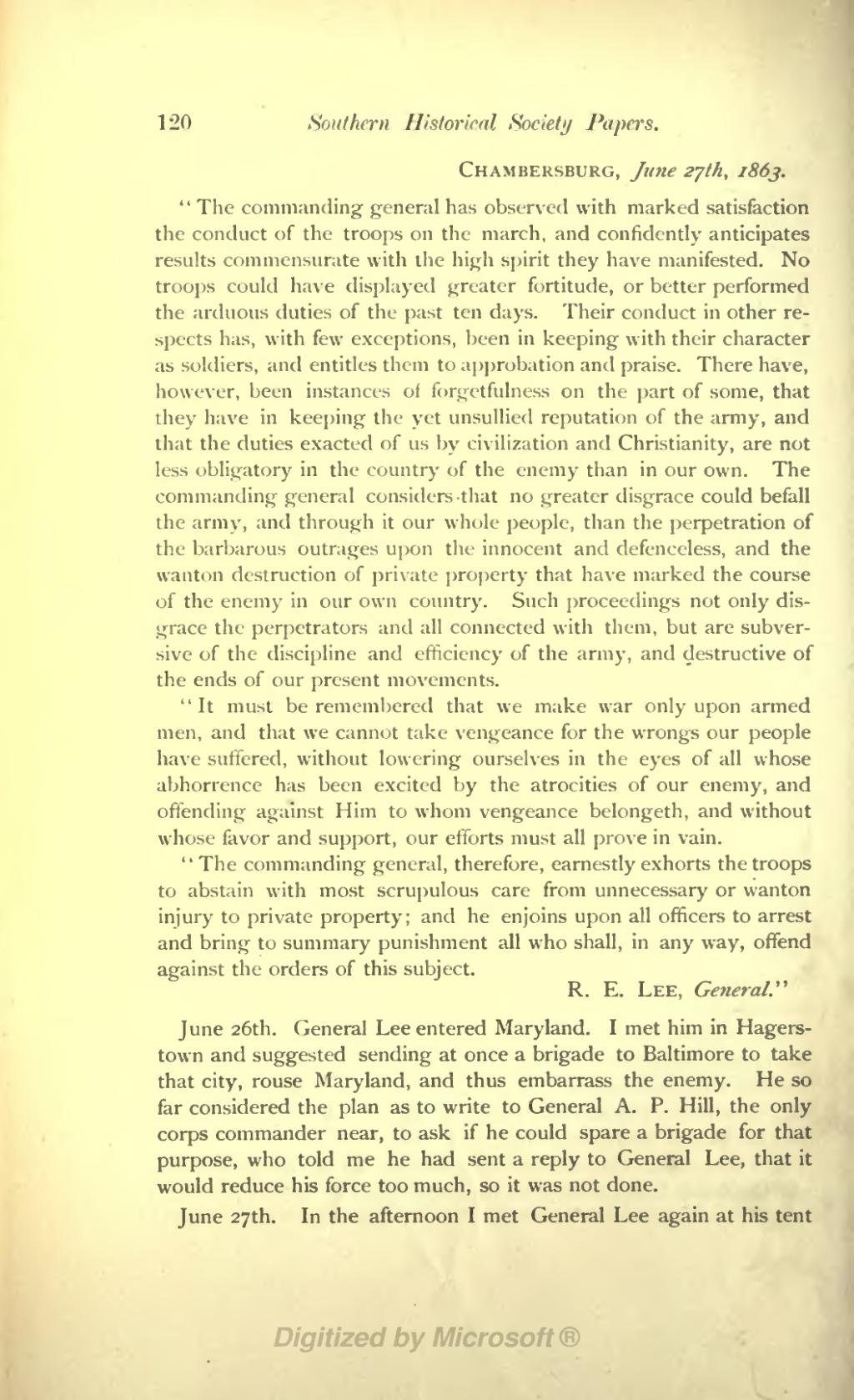120 Southern Historical Society Papers.
CHAMBERSBURG, June 27th, 1863.
" The commanding general has observed with marked satisfaction the conduct of the troops on the march, and confidently anticipates results commensurate with the high spirit they have manifested. No troops could have displayed greater fortitude, or better performed the arduous duties of the past ten days. Their conduct in other re- spects has, with few exceptions, been in keeping with their character as soldiers, and entitles them to approbation and praise. There have, however, been instances of forgetfulness on the part of some, that they have in keeping the yet unsullied reputation of the army, and that the duties exacted of us by civilization and Christianity, are not less obligatory in the country of the enemy than in our own. The commanding general considers -that no greater disgrace could befall the army, and through it our whole people, than the perpetration of the barbarous outrages upon the innocent and defenceless, and the wanton destruction of private property that have marked the course of the enemy in our own country. Such proceedings not only dis- grace the perpetrators and all connected with them, but are subver- sive of the discipline and efficiency of the army, and destructive of the ends of our present movements.
" It must be remembered that we make war only upon armed men, and that we cannot take vengeance for the wrongs our people have suffered, without lowering ourselves in the eyes of all whose abhorrence has been excited by the atrocities of our enemy, and offending against Him to whom vengeance belongeth, and without whose favor and support, our efforts must all prove in vain.
" The commanding general, therefore, earnestly exhorts the troops to abstain with most scrupulous care from unnecessary or wanton injury to private property; and he enjoins upon all officers to arrest and bring to summary punishment all who shall, in any way, offend
against the orders of this subject.
R. E. LEE, General."
June 26th. General Lee entered Maryland. I met him in Hagers- town and suggested sending at once a brigade to Baltimore to take that city, rouse Maryland, and thus embarrass the enemy. He so far considered the plan as to write to General A. P. Hill, the only corps commander near, to ask if he could spare a brigade for that purpose, who told me he had sent a reply to General Lee, that it would reduce his force too much, so it was not done.
June 2yth. In the afternoon I met General Lee again at his tent
